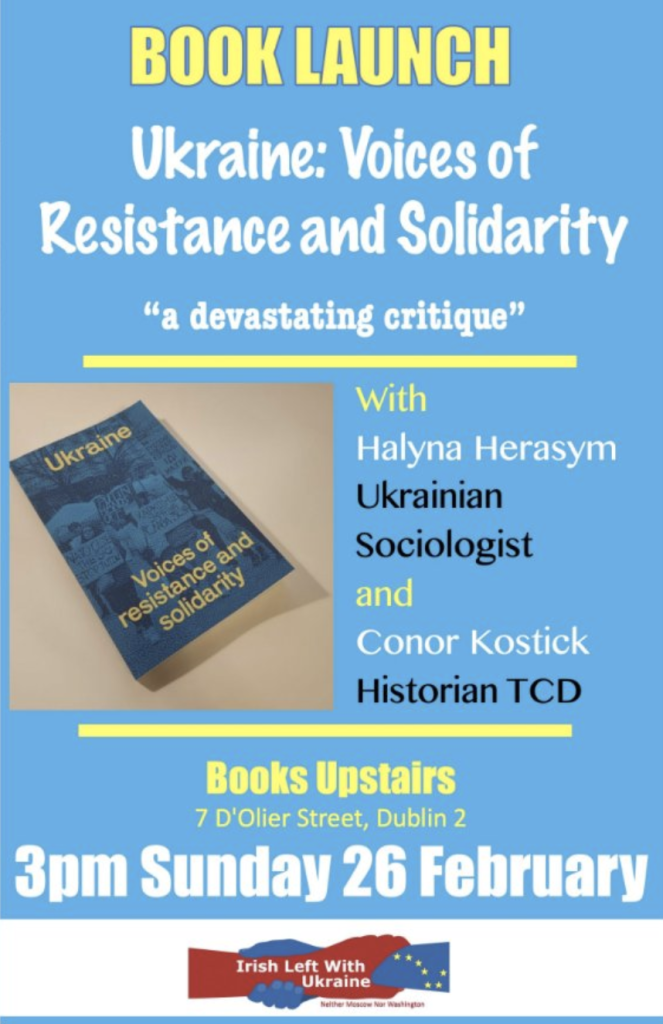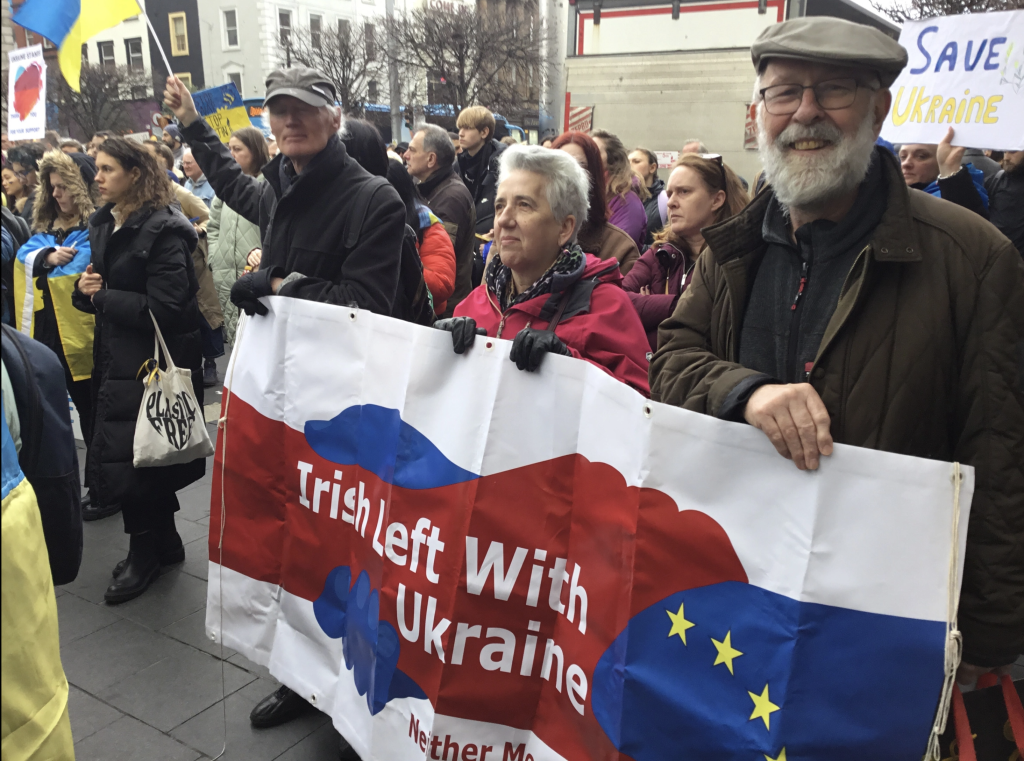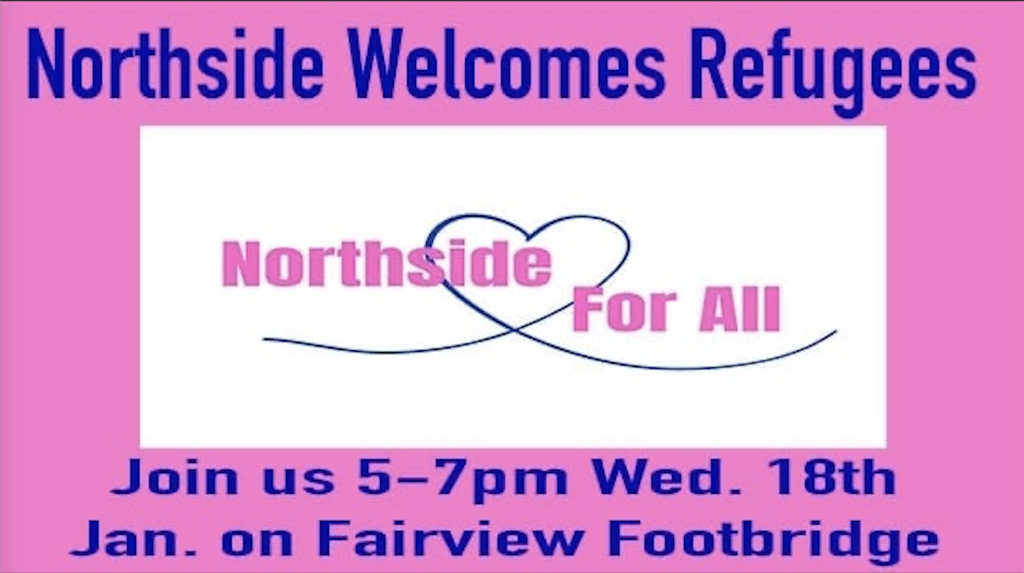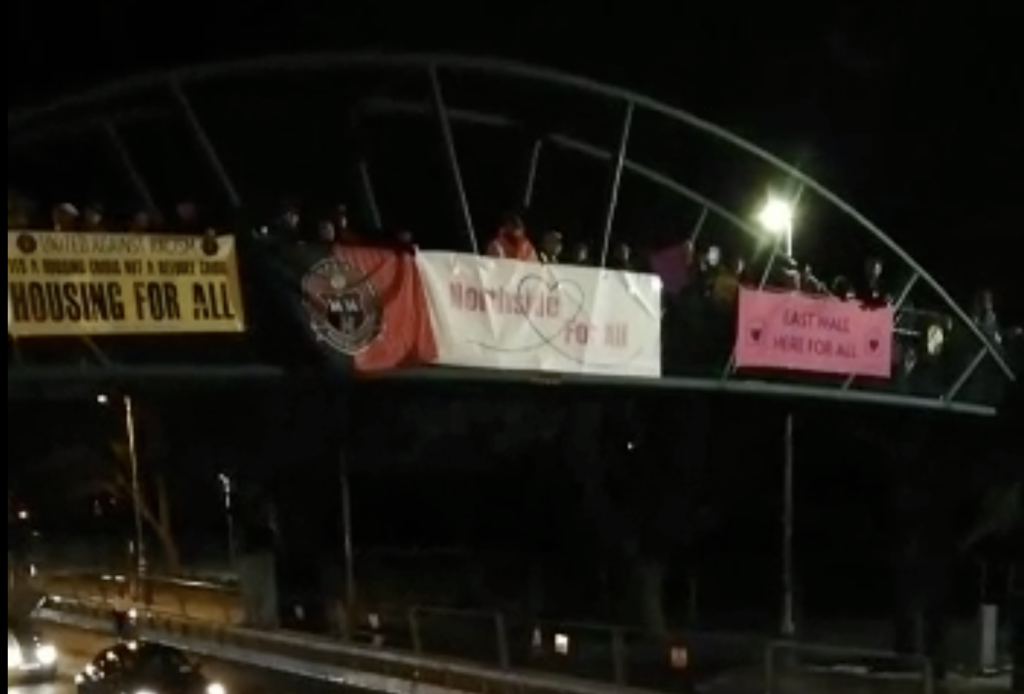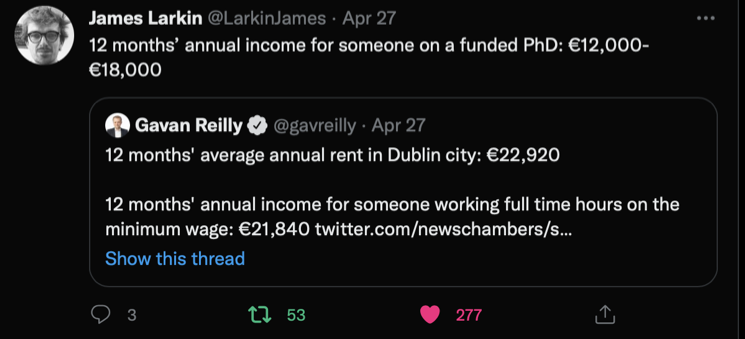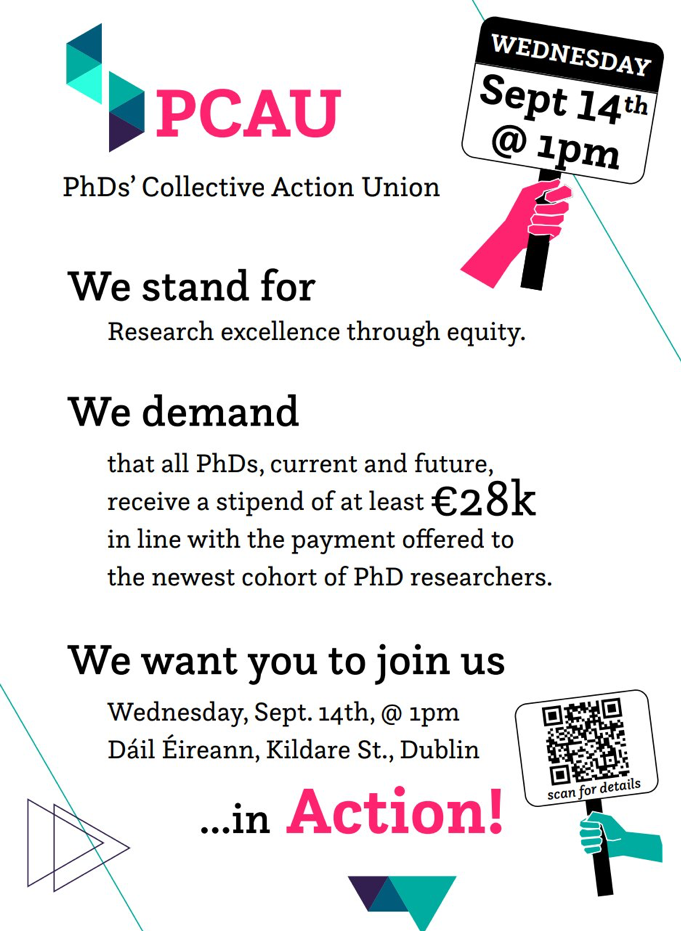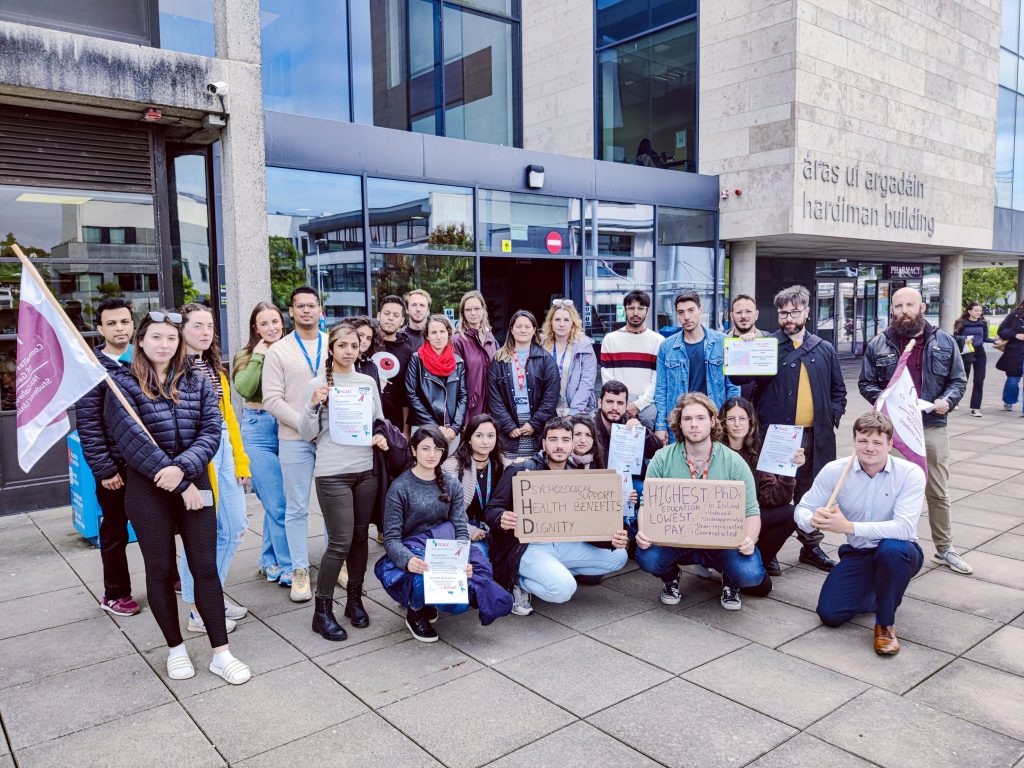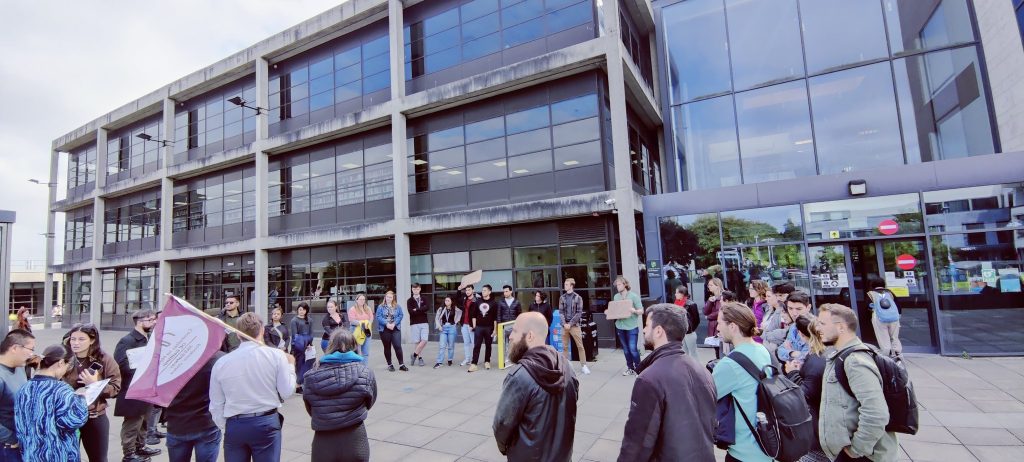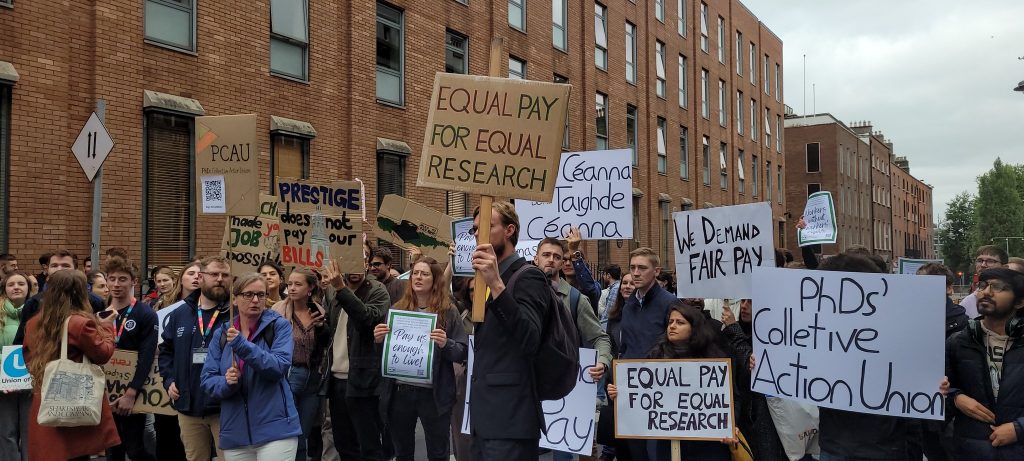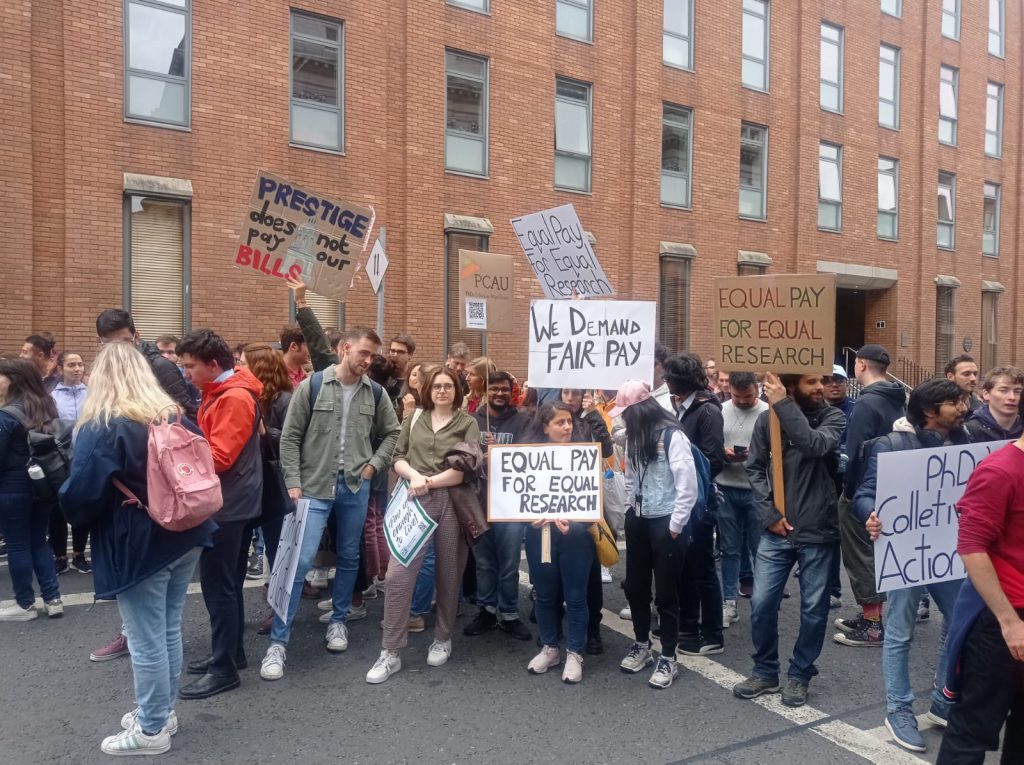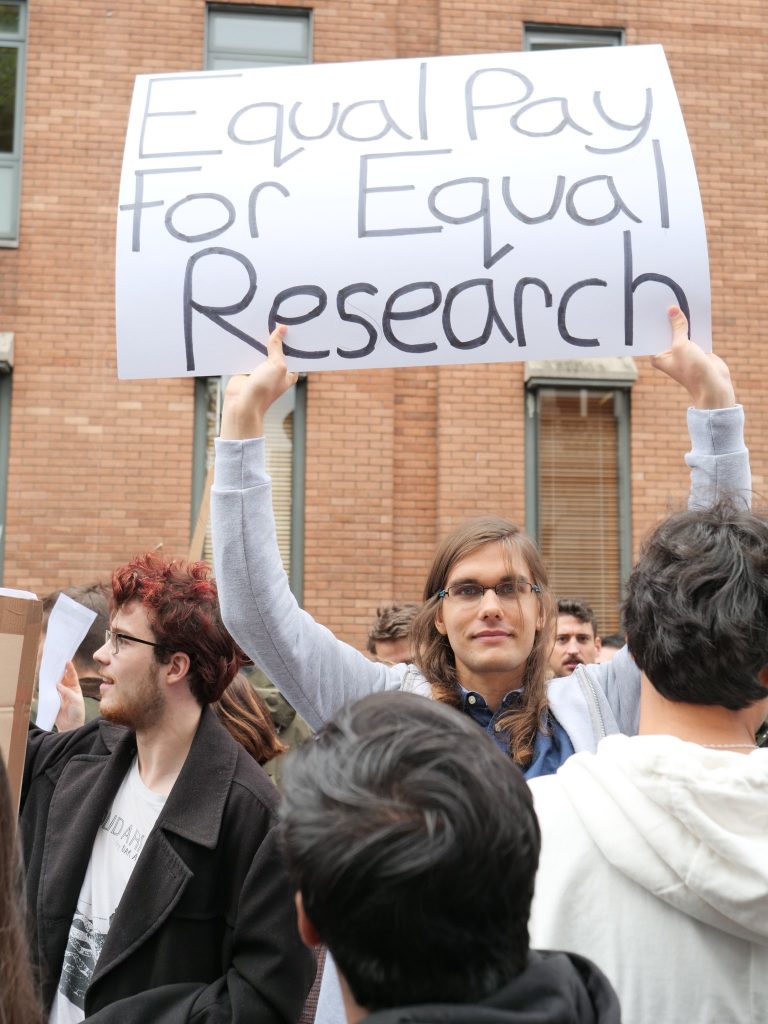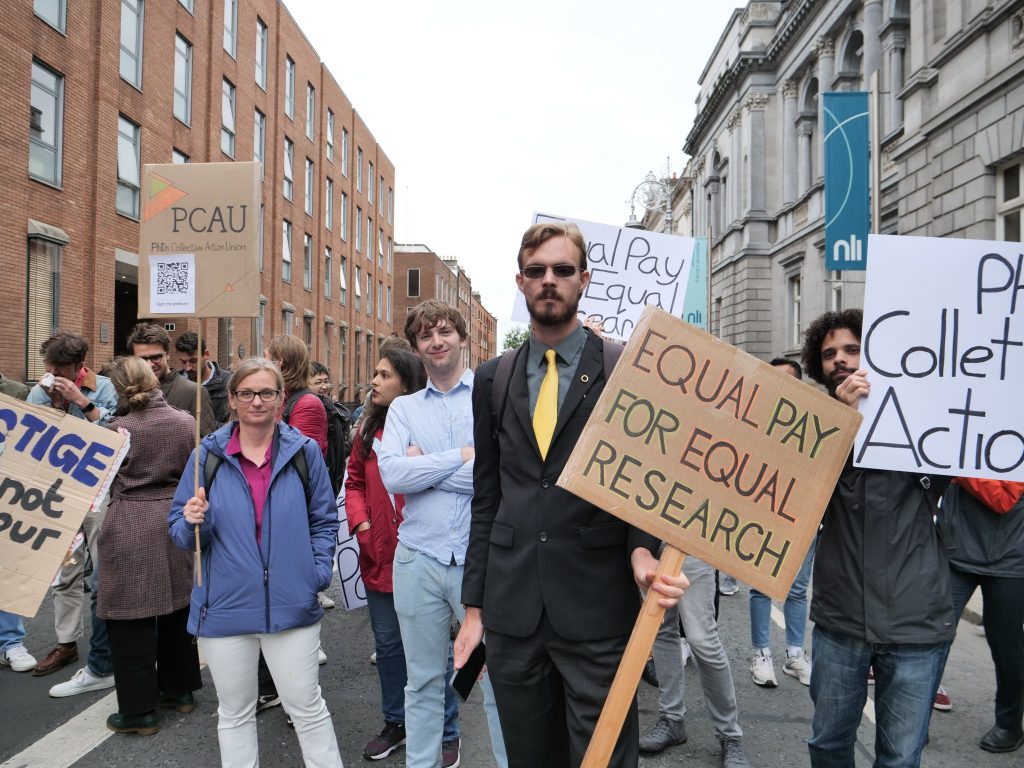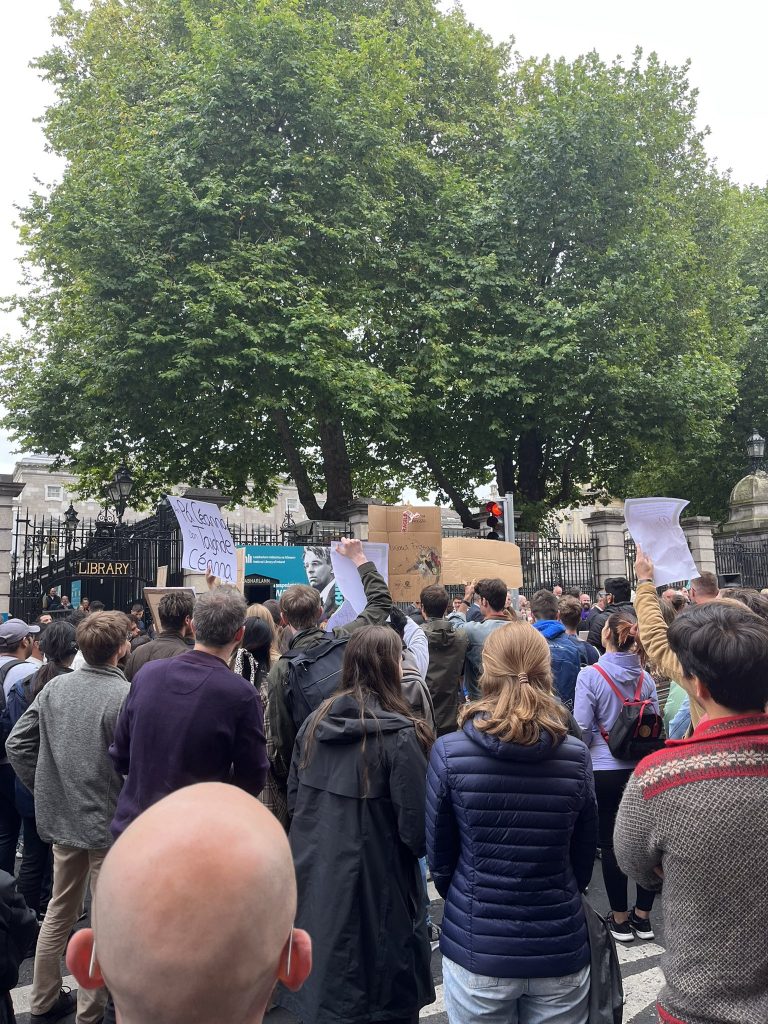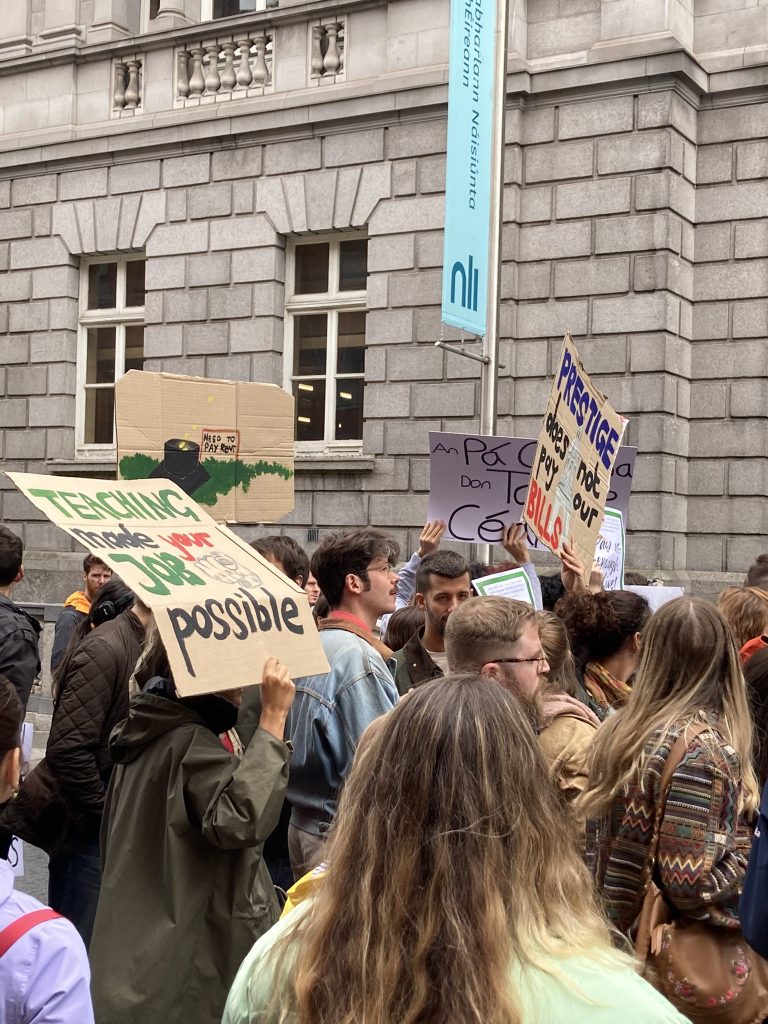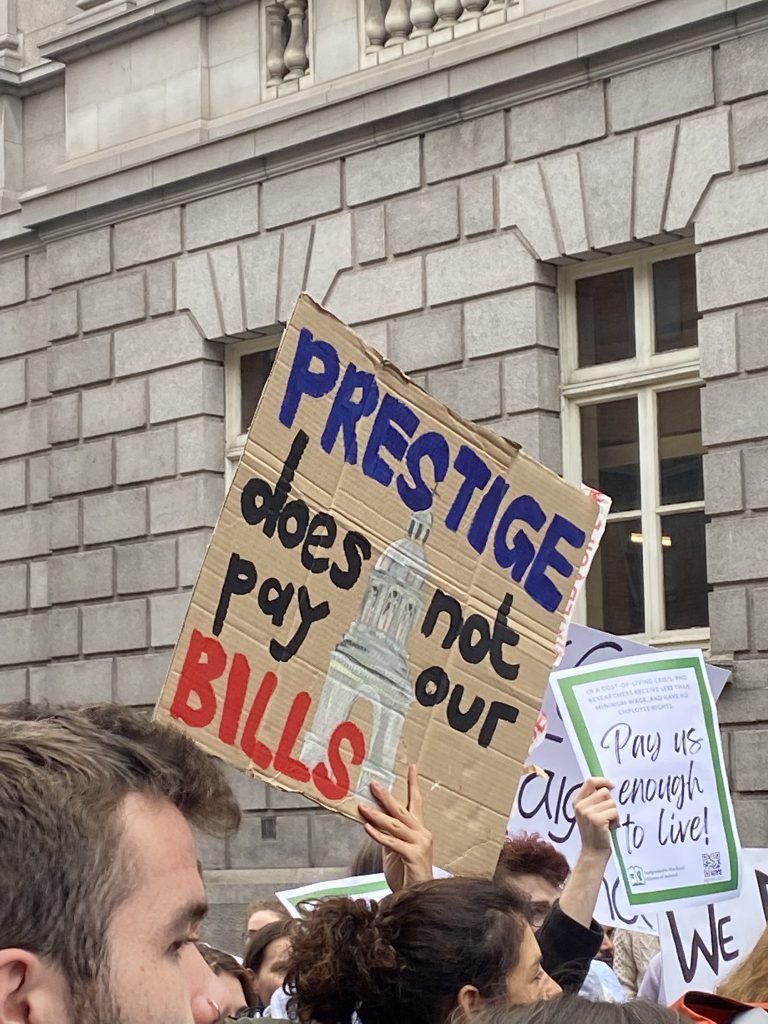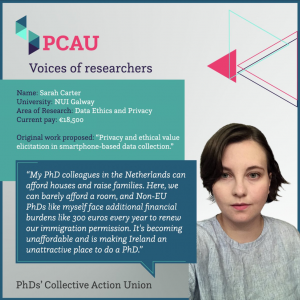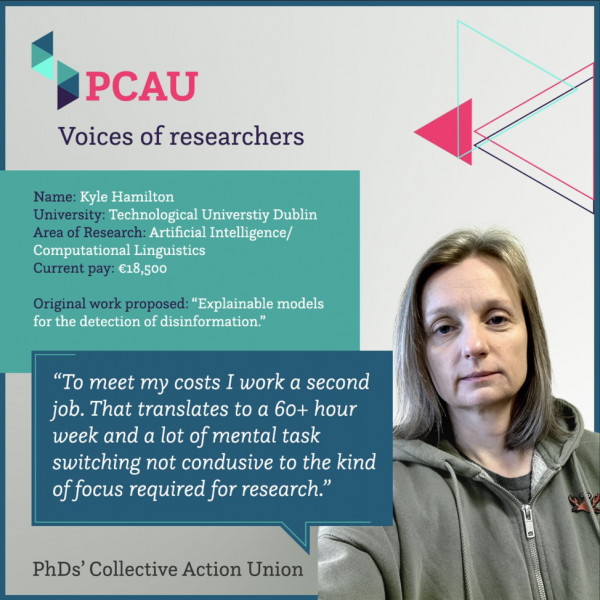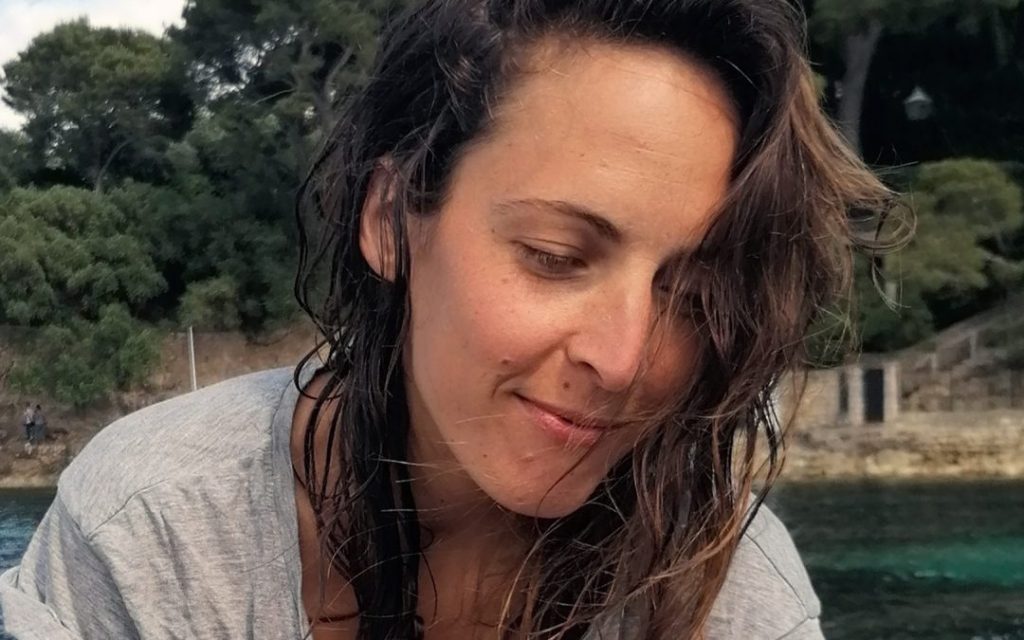
Gerrah Selby spoke to Independent Left in August 2023
The SHAC campaign stands for Stop Huntingdon Animal Cruelty. SHAC formed in 1999 to close down Huntingdon Life Sciences, which was Europe’s largest animal testing laboratory, killing 500 animals every single day. It formed after there was a Channel 4 investigation of the laboratory. And there was a documentary that was aired on Channel 4 showing the most horrific animal abuse, puppies being punched in the face, dogs having pesticides forced down their throats. There’s so much that you can talk about the vivisection industry, and about Stop Huntingdon Animal Cruelty.
I sometimes feel like it was the social justice movement that created so much anger at the time, and yet very few people nowadays know much about it. And in part that was because of how successful the repression was against the movement, that it basically silenced an entire generation of activists.
How the campaign operated was that they decided that standing outside the laboratory every day, shouting through megaphones wasn’t really going to have much of a difference. It wasn’t really going to close down the laboratory. It wasn’t going to change any hearts and minds. And so the organization decided that they were going to target the companies who were dealing with Huntingdon Life Sciences. The companies who Huntingdon Life Sciences needed, but the companies didn’t need Huntingdon Life Sciences.
That meant targeting its banks, its investors, it’s shareholders, the people who were supplying their cleaning services, the people who were supplying them cages, the customers of Huntingdon Life Sciences, the massive pharmaceutical and agricultural companies who were paying Huntingdon Life Sciences to test their products. Huntingdon Life Sciences was a toxic research laboratory, which meant that they would conduct any experiment that they were paid and asked to do. And they were known locally as the poisoning factory. A lot of the time they were testing pesticides and herbicides, and oven cleaners, and even SPLENDOR on animals. And obviously every single experiment resulted in the animals being killed afterwards. And so this campaign began, and it pretty soon started to upset a lot of people. Obviously, taking on the pharmaceutical industry you don’t make a lot of friends.
Soon there was a bit of a backlash against the campaign, although we had massive public support to start with. And I think because pretty much everyone can recognize that when they watch video footage of animals being mistreated, you can tie it back to the animals that we have in our homes and animals who we’ve grown up with. Pretty much everyone was on board with this campaign to close down the laboratory. Perhaps the government should have done its duty and closed down a laboratory that had been caught numerous times violating the good laboratory practices; but they didn’t.
So Stop Huntingdon Animal Cruelty started and were soon creating a lot of enemies. The campaign made things personal: a lot of time the heads of the companies themselves were targeted, which meant home demonstrations outside the homes of CEOs, of pharmaceutical companies. People were camped out in their gardens, people were swimming in their swimming pools, people were climbing on their roofs, and it got personal. And even the Home Secretary – I think Jack Straw – was visited by a home demonstration. A lot of people started to put pressure on the government to prevent these, and the laws were amended to target animal rights activists. Laws we’re seeing now play out against a lot of other activists of other social justice movements. In a way, I think the animal rights or the anti-vivisection movement were the first to be targeted in this way.
There were various pieces of legislation that were changed. The Protection from Harassment Act was used to target protesters, despite originally being brought in to protect women from stalkers. Companies used it to obtain injunctions against activists, which limits how often you’re allowed to protest against them, how many people are allowed to protest against them, how often you’re allowed to protest against them, whether or not you’re allowed to use a megaphone, or wear a costume even.
The Criminal Justice and Police Bill; the Malicious Communications Act and the Companies Act were all amended to criminalize office occupations, to criminalize home demos and conference disruptions. And when this didn’t work, SOCPA legislation was brought in 2005, which made it a criminal offense to interfere with the contractual relationship of an animal testing laboratory. This meant that things that activists could have done before, which were very standard civil disobedient tactics such as office occupations or trespassing on company premises – just very simple things that activists do a lot of the time – suddenly those offenses now carried a five-year prison sentence.
I rocked up in this environment. I was 18 years old at the time, and I just moved to the UK. I had originally planned on going to university, and I came across a Stop Huntingdon Animal Cruelty stand. This was a campaign that I had been following for a long time. I’d been admiring their brassy, bold communications. I quite liked the spunk and the spark that the campaign carried. And so I had a conversation with the people holding the stand, and they invited me on a protest a few days later, which I attended. It was a very small protest. There were only five of us, and we were stood on the side of this grass verge. We were so far away from this company because this company had just recently taken out an injunction against activists. And the people who I was attending the protest with had never been served the injunction.
They didn’t know exactly where we were allowed to protest to be outside of the exclusion zone, but we stood so far away from this company that we assumed where we were must be on the safe side. I think the company was inside an industrial unit, and we were outside of the unit. We were on the grass verge so far away from the company, we couldn’t even see it. We stood there for about an hour. I didn’t even use a megaphone because I was too shy. I’d never used a megaphone before. I just stood there with a placard, and then we decided we were going to head off to the next premises. As we were leaving in our car, we heard sirens all pull up behind us. And pretty soon we were pulled over and we asked, ‘Why are you pulling us over?’

They said, ‘Oh, we think you’ve broken this injunction that this company has just taken out. And so we’re going to be arresting all of you.’ So this was my first introduction to what the protest scene was like in the UK at the time. I’d done nothing more than stand on a grass verge with a placard. And now I was being put into handcuffs and taken down to a police station, where I had my DNA taken, my fingerprints taken. I was locked in a cell for more than 12 hours. I think I was let out about two o’clock in the morning, and they’d seized my mobile phone from me.
At the time, I think I recognized that this was a very clear sign that there was a lot of pressure to intimidate activists out of wanting to take part in the anti-vivisection movement. I think anyone who has been arrested before can testify, it’s not a very nice feeling. You feel violated, especially I think when you haven’t done anything wrong. And every single person who’d been on that protest, we were all probably teenagers. And it felt very clear that it was designed to intimidate us. On that day, I resolved to myself that I wasn’t going to allow them to intimidate me. And so I decided I would join the SHAC campaign full time. I decided I wasn’t going to go to university, and I threw myself into this campaign. I think partly that was because I could see that the tactics of the government were having an effect.
Once they started to criminalize activists to such an extent with the SOCPA legislation and all of the other legislation, it had a very chilling effect. A lot of people were no longer willing to take part in this campaign. I decided that, well, it was such a successful campaign that surely this was a sign that we were winning, and so we all needed to pull our part. And so I joined the SHAC campaign full time. Every single day we were protesting. We were doing information stands. We were doing research on the companies involved. I was arrested a lot more times for really stupid things like holding a placard of a vivisected cat that a police officer told me I wasn’t allowed to show. Because apparently it was offensive to show the reality of what was happening to animals in laboratories.
Again, it all felt very designed to silence people, but I tried to not let it work on me, I suppose. A lot of the time I feel like I’m not a very brave person. But I think that we have to try and find the courage somewhere to stand up for the right thing. So I stayed with the SHAC campaign for a further 10 months. And then on first of May, 2007, I was woken to the sound of glass smashing in the downstairs kitchen at about five o’clock in the morning. I wasn’t too sure what was happening, but the next moment I could hear the sounds of boots stomping up the stairs at my house and the shouts of, ‘Police! Police!’ All of a sudden my bedroom door caved in, and all these police officers came charging into my bedroom, and they’re screaming at me to put my hands up in the air. And I felt like, What the hell is happening?
Eventually, I put my hands up in the air. They dragged me out of bed and they told me that they were arresting me for three different charges. Two were SOCPA offenses under the recently introduced legislation, that made it a criminal offense to interfere with the contractual relationship of an animal testing laboratory. And the other offense was conspiracy to blackmail. When they said they were arresting me for conspiracy to blackmail, I thought, This is obviously a massive reach. I don’t know if there’s a case of mistaken identity somewhere. I’ve never blackmailed anyone in my life. But obviously they didn’t want to listen. They took me downstairs, they put me into handcuffs, and they took me to a police station in the back of a van, where they held me for 36 hours. At the end of the 36 hours, they told me that they were going to be charging me with conspiracy to blackmail.
Very embarrassingly, I cried when they told me that they’re going to be charging me for conspiracy to blackmail. It was something I thought, How can this be? I have never conspired to blackmail anyone. It turns out that their allegation of what constitutes blackmail is very strange. I feel like almost any protest group could be prosecuted under this legislation, if there was the governmental desire to silence that campaign. They said to blackmail is to make unwarranted demands with menaces to cause loss to another or gain to another. And they said the unwarranted demand was asking companies not to deal with Huntingdon Life Sciences, which they said was an unwarranted demand because the government licensed the laboratory. So there’s nothing wrong with what the laboratory was doing. They said the menace was that if companies didn’t do as we ask them, we would put their company details up on our website, and we would urge other people to contact the companies and ask them to cease dealing with the laboratory.
They said that companies knew what would happen to them if they went up on the SHAC website. They said they knew that they would be targeted in terms of protests, letter writing campaigns, email campaigns, and sometimes through direct action. And even though we had a disclaimer on our website that said, ‘Please don’t do anything illegal. Please contact these companies politely. We want to have these people on our side,’ the prosecutors claimed that none of that mattered. Essentially we were held accountable for every single thing that ever happened throughout the history of this campaign, because we had published those company details on our website, and we had asked other people to take action. They said it caused a loss of a business contract. It took 20 months to go to trial.
During that time, none of us were allowed to take part in protests. Three of us were remanded into prison. Despite one of the people handing themselves into custody, they were apparently too much of a threat to the public to be released on bail awaiting sentencing. It took 20 months to go to trial. And eventually, I think seven out of eight activists including myself were found guilty. I don’t know if any of you have seen there’s a documentary called The Animal People, and it details what happened to SHAC activists in the USA. It turns out it was very similar, which I didn’t know at the time. I knew that the SHAC activists in the USA had been prosecuted under animal rights terrorism charges. But I didn’t quite realize to what extent it was a very similar story in court.
Basically, our entire court experience was sitting there listening to all of these things happening that none of us had any involvement in. And none of us knew about. A lot of the time for me, it happened long before I’d ever been involved in the SHAC campaign. But essentially, they were bringing them up for the jury. All of these things that had happened that a lot of the time were very unpalatable things. None of us were involved in them. None of us knew about these things or who had done it. But they were saying, ‘Look at these awful things have happened. Look at these victims.’ They had people coming out and testifying behind curtains and crying. And we were the only people being held up, and being held accountable, and were the only ones who could be blamed for what these people had gone through.
Essentially, we were the people who became the targets, or the people blamed for everything despite none of us having been involved in it. And so at the end of the trial, the jury found us guilty and we were sentenced to a total of 50 years in prison. I was sentenced to four years in prison, with the judge at the time saying he had to give me such a high sentence to act as a deterrent to others not to engage in the same form of urban terrorism. Which was surprising to me because I was essentially being accused of having taken part in lawful protests. And they said that these protests had been my part in the conspiracy.
Also what was strange to me was that there wasn’t really much media outrage about what happened to us. No one was saying, ‘Oh, these peaceful nonviolent protestors have just been sentenced to up to decades in prison for running a protest campaign.’ There was no media articles, there was no one suggesting, ‘Wait a second, is this fair what’s happened.’ It seemed all across the board pretty much the media were in alignment that this was justice and this was fair, what had happened to us. And I think a large part of that is probably because the media had a vested interest in seeing the status quo continuing. But it was disappointing to me to not have any journalists question the story.
While I was in prison, I remember reading about Pussy Riot being sentenced to prison in Russia. There were so many articles about the Pussy Riot activists, how outrageous it was that Russia was sending these activists to prison. And I remember thinking it was very strange at the time that no one cared what was happening here in their country; but alas they didn’t. I think I’d always known that prison could be a possibility for me. I think that when you are involved in social justice movements, it really is quite clear that if you upset too many important people, you do pretty quickly become a target. And I think most of my heroes throughout history have usually ended up being incarcerated for caring enough about their causes. But I always assumed if I was going to go to prison, it’d be for something that I’d done.
I got sentenced to prison for four years for basically protesting. I think I hadn’t necessarily appreciated what prison would be like. I think we sometimes have this false bravado about activism and about prison. I’d been reading letters from other prisoners, or political prisoners who’d always put on a brave face. And I think part of that is because you really don’t want to put people off activism. And that’s absolutely something that I feel strongly: I don’t want to put people off activism. I think it’s very important that we do all find the courage to stand up for the right thing. However, I think the reality for me is prison was quite a brutal experience. I didn’t appreciate to what extent there were a lot of people in prison who were suffering from mental health issues.
Gerrah Selby: the Experience of Prison
I was remanded into Holloway Prison, which was Europe’s largest female prison. While I was there, there were people with self-harm scars etched all the way up to their shoulders, from their wrists. I was held in a young offenders institution, the young offenders wing of Holloway Prison. And often there were people in the cells next door to me or down the corridor who were trying to kill themselves every night. I remember feeling so outraged thinking, ‘How is this justice? This isn’t justice to me. No matter what these women have been accused of, how is this going to be helping anyone?’
There’s a statistic which says that within nine years of release 75% of ex-prisoners re-offend. Clearly prison isn’t helping anyone to move on with their lives. Instead, a lot of the time it’s inflicting a lot of harm: 76% of women in prison report problems with their mental health; 46% of women have at some point in their lives tried to kill themselves; following release female ex-prisoners are 40 times more likely to try to commit suicide than normal members of the public.
Because I was quite young at the time, I think I’d never really put too much thought into prison abolition. I had always clearly supported freeing political prisoners, and we often have this slogan of free political prisoners, but we don’t talk about the other prisoners. We always kind of assume, ‘Oh, but those other ones, they probably deserve it. And those other ones, they’re probably dangerous.’ But actually I think definitely in regard to female prisons, at least, a lot of the time those people are firstly victims.
A lot of the time they have been the victims of domestic violence: 54% of women in prison have been emotionally, physically, or sexually abused as a child; 60% of convicted women have experienced domestic violence. A lot of the time prisons are full of people who are from low income backgrounds, who don’t have as many job opportunities. And so it’s very clear who is being targeted by our prison systems. And not to mention the racial injustice that happens in our prison systems. Police forces are up to 28 times more likely to use stop and search powers against black people than white people. Black people are 11 times more likely to be arrested than white people. Young black people are nine times more likely to be jailed than young white people. The statistics are astounding, and yet we continue this system and we sometimes say, ‘What are the alternatives? There are dangerous people out there.’
One of the arguments against prison abolitionists says, ‘Well, what are we going to do with all of the rapists and the murderers?’ The response to that is, ‘What are we doing with them now?’ Do we live in a society where we don’t have to fear those things? Well, I think it’s less than 1% of rapists actually get convicted. So currently 99% of rapists are out here in society already. So are we helping our society with prisons? Are we keeping anyone safe with prisons? The majority of people who go to prison are going to be released at some point into our society. And are we just inflicting more harm on them by creating more social divides. It costs £48,000 a year to keep someone in prison. I think in Ireland it’s Є80,000.
Across the board a lot of governments are saying, ‘We need to increase prison places.’ In the UK at the moment, they’re trying to build four new prisons, which they say is to improve rehabilitation, help local economies, support construction industry to invest and innovate. They’re going to spend £2.5 billion to create 10,000 additional prison places, which to me seems absurd that those are the reasons to build prison places. Because prisons do not improve rehabilitation: prisons inflict trauma on people. I don’t think that anyone could argue that being locked in a room for 23 hours of the day, is going to be doing anyone any good for their mental health, is going to help anyone to move on with their lives. I don’t think that leaving people with criminal records that make it hard to find employment, or to find housing is helping anyone to rehabilitate themselves. And as for helping local economies and supporting construction industry, I’m sure we could find better things to help our local economies work, or better things to be building rather than places that hurt people.
Police don’t prevent crime, they respond to it. What prevents crime is higher wages, guaranteed healthcare, food security, childcare, housing, good schools and addiction treatment prevention centers. I think it was Angela Davis who said, ‘Prisons do not disappear social problems, they disappear human beings. Homelessness, unemployment, drug addiction, mental illness and illiteracy are only a few of the problems that disappear from public view when the human beings contending with them are relegated to cages.’
These, I suppose, are some of the reasons why I became involved in prison abolition. I believe that prisons are not helping anyone. I don’t think that they’re helping the public, and they’re certainly not helping people who have been incarcerated within them. I think it’s a way that we can build up walls, and we can forget about the problems of them, or the problems that our societies create. If we were actually addressing those problems and spending the money that we spend on prisons on community centers, and programs to help people, we would probably be seeing a lot better results. Sadly, the government didn’t seem particularly keen on investing in alternatives to prisons, and they definitely don’t seem to be changing their attitude towards how they treat protestors. What we saw play out against the Stop Huntingdon Animal Cruelty campaign, we’re now starting to see being used against activists like Just Stop Oil, Palestine Action, and Extinction Rebellion amongst others.
Again, the media is starting to shift the narrative, these activists are suddenly being called terrorists. Politicians are describing them as extremists and as a threat, as criminals. Legislation is now being changed that’s targeting activists and putting them at risk of up to 10 years in prison, for things like lock-ons and for disturbing the public nuisance. Right now, it does look pretty depressing I would say. You can see this in the UK: the Civic Freedoms Index downgraded them recently and described them as being hostile and authoritarian. The UK government brought in a spy cops law that would sanction murder and rape by undercover police. They’re at risk of being listed as a human rights abuser according to – I think it was – Human Rights Watch. It’s basically waging war against protestors with the Police, Crime, Sentencing and Courts Act, and with its Public Order Bill amendments.
I would say that looking at what the UK is doing and looking around the world, it’s a pretty upsetting situation. It’s not only in the UK, it’s also happening in the USA, in Germany. In a lot of countries activists are suddenly being treated as being part of a criminal organization: that’s what the narrative is shifting towards. Suddenly we’re no longer activists, now we are criminals. And I’d say it is a bit disheartening, but amongst all of the doom and gloom, there is hope. For a very long time I found our story was pretty depressing, and not full of very much hope. They silenced an entire movement against the animal testing industry for a very long time. But injustice cannot live forever. Now in the UK, we are seeing new campaigns bring up against the anti-vivisection movement. New campaigns that are targeting the vivisection industry in really smart ways.
We have Animal Rebellion now called Animal Rising, who have done two successful liberations of beagles. They’ve simply climbed the fences of MBR Acres, which is a beagle breeding company. They’ve directly started freeing the dogs from those facilities, passing them over the fences. They freed over 20 beagles through that way while wearing t-shirts saying: Put Animal Testing on Trial. That’s what the T-shirt said, put animal testing on trial. And they deliberately were trying to be arrested for this crime, well, they knew that the public is on our side. No one wants experiments on dogs. Anyone who looked at the undercover video footage – no matter whether it’s on dogs, whether it’s on cats, whether it’s on rabbits, or whether it’s on rats and mice – I feel like anyone who has a heart would watch the video footage and be absolutely outraged.
I think the vivisection industry only has continued for as long as it has, because it has managed to keep a large part of what it does hidden from the public, and to keep the realities of what they do sanitized from the public eye. So every time there’s undercover video footage come out, they try to wash it away, ‘Oh, these were individual cases.’ But we all know it’s not. Every single laboratory, no matter where they are, whether it’s in the UK, whether it’s in Germany, whether it’s in the USA, it all shows the same horrific animal abuse. And I don’t think that anyone with a heart can watch that video footage and not be absolutely outraged by it. So Animal Rising have decided to target the vivisection industry with what I think is a brilliant kind of tactic, which because they want to take it to trial, they want a jury to vote on what they think is right.
Do they think that freeing a dog who’s going to be destined for a laboratory, where they’re going to have chemicals forced down their throats, is that a crime or is that a rescue? And I think the majority of the public is clearly going to vote in favor of the activists. That’s why none of those activists have actually been arrested or prosecuted for these crimes: they haven’t decided to take these activists to court. They’re running scared. Companies like MBR Acres do not want the publicity involved with these activist trials. I think now we’re seeing so many new and interesting ways of taking on this industry, and I think there’s hope there.
The hope is that no matter how much the government may use a sledgehammer to crack a nut, no matter how much repression they use to target activists, you can’t silence a movement forever and eventually justice will prevail. I think the anti-vivisection section movement, we have morals on our side. Truth is on our side. And no matter what they might do, they can’t silence us forever. And no matter what they might do to a generation of activists, new activists are going to spring up.


Discussion
LB: Well, thanks so much for that Gerrah, as always very eloquently put. And I can still hear the rawness of your experiences in your voice, and in your descriptions and stuff. So thank you for being willing to share your story. And just for the record, how old were you when you were imprisoned?
Gerrah Selby: I just turned 19 when I was arrested, and then I was sentenced to prison when I was 20. I was in prison for two years because in the UK you serve half of your prison sentence, or at least you did serve half of your prison sentence. And the other half was on probation, which sounds like it’s a nice thing to be on, but actually is a bit of a shitty experience too, because they can take away your freedom at any time. Again, when I was on probation, it was very political how we were treated. None of us were allowed to be involved in any animal rights organization. I wasn’t allowed to be involved in any human rights organization. I wasn’t allowed to be involved in any environmental organization. All the things that I cared about, suddenly I wasn’t allowed to do any of it.
And even if I spoke to a vegetarian, I was risking being recalled back to prison. My friend said that men in suits had allegedly come to her prison, and they had threatened her prison governor that if he gave her day release, he would lose his job. There were definitely some powerful interests, who were using this experience to punish us further than even standard criminals are treated.
LB: Outrageous, and what you experienced is horrific and unjust and unacceptable for anyone to go through. But for that to have started when you were still a teenager is just outrageous. And it’s a credit to you that you’re still here, and still in the movement and still talking about it. That even while going through something so horrific, you still had the empathy in prison to be thinking about other people, and what they were going through, and what an unjust system that was. It’s pretty incredible I think at 19, 20 years old that you were able to go through that, still think of other people and be here still talking about it. And still seeing that hope and that light at the end of the tunnel for the animal rights movement, and to be such an outspoken advocate for prison abolition. And I know in the start of your talk, you said you didn’t consider yourself brave.
You’re one of the bravest people I know, and it’s an honor to know you. I met Gerrah when I was still a teenager. And I witnessed what had happened to her and others and all the press and them being called extremists and terrorists. I witnessed it all unfold from over here in Ireland, and it was absolutely horrific. So it is incredible that you’re still here, still fighting the good fight, and haven’t turned your back on the movement. So thank you Gerrah, you’re one of my heroes.
CK: Well, I feel the same sentiment just listening, that it’s really admirable that they didn’t crush you, that you came out of this. You describe yourself as not brave: I think you are brave. But in that sentence, in that honesty is something really important. Which is that there’s a myth around the revolutionary. We’d be mistaken if we put everyone on a pedestal who’s stood up against power. And to hear it, the reality of it, and the reality of prison and not glamorize it, but to go through a horrible, horrible experience like that and then still to fight. That’s great. There’s hope for us all. So it’s an inspiring story Gerrah, even though it’s a horrible one, and we’ve got to share it widely.
When you said, ‘It was depressing, it was tough, there was no hope, but things came around,’ that reminded me of post the miners’ strike. I became radicalized in England when I was living there, and I got involved supporting the miners, and they lost at the end of that year. We lost and people went to jail as well, and it was hard to feel the hope. But the Tories paid a price for that victory, which is they did radicalize people like me. Who’ve never stopped being an activist as a result of what I saw during that year, and I won’t ever stop.
A lot of people are like that, thousands, tens of thousands of people are like that. When the opportunity came to get back at the Tories, say around the Poll Tax, there was a constituency ready to move. And when the middle ground finally copped on and expressed the desire to act, there were a lot of people ready to help organize. So I would be hopeful that as well as the new generation you’re describing who are coming up with good tactics, that even though there are people who’ve been through struggles and lost, they haven’t gone away.
I see it a lot with the old left around my age, my generation. They are disheartened a lot of them, but I think that a new movement that came back to life would bring these experienced activists coming back into the movement, that would be my hope. And then my question would be, I was thinking how can one as an activist protect oneself from having to go through your experience? Say I do something that I know is going to risk reprisal from the state, how can I minimize the risk that the state will win?
It’s smart to try and angle the issue in such a way as it becomes a question of rescue rather than crime… you were admiring that tactic. And I was wondering what else? For me, I think having a network around you before you go into danger is really important. So when the attempt to isolate you happens, there are people who weren’t involved but they know, they were briefed, they’d heard why you were doing it. And they’d be more inclined then to support you than believe the state.
Gerrah Selby: I agree. I think to be honest, I feel like there’s nothing that you can really do to make yourself safe as an activist. I think that if you are upsetting the status quo, no matter how many things you do that you think are going to perhaps prevent you facing prison, I don’t think that any of those things are necessarily going to work. I think prison is absolutely a potential consequence of taking action no matter how safe you try to play it. The SHAC campaign tried to play it quite safe, although obviously we always walked up to the line. I think we very definitely didn’t try to purposefully overstep the line, and they changed the legislation around it. And they came at us with charges that a lot of us don’t believe that we were guilty of. Even though we had hired barristers and we had lawyers who oversaw our communications.
There was nothing really that I don’t think that we could have really done to keep ourselves safe in that respect. But I do definitely agree that we could have done things better in terms of having more solidarity with other movements. I think that is something that we’re starting to see now in other movements, is that we’re having a lot more solidarity. Just Stop Oil have been holding events with Animal Rising. There’s a lot more journalists who are speaking out against the legislation that’s being used to target activists. I think it’s very important that we work on those relationships. Obviously it’s really difficult to trust the media. But I think it’s important to try to find quality journalists where you can and to work at building relationships with them: to continue to speak your narrative, and to never shy away from speaking your narrative.
We were imprisoned at a very different time. Social media wasn’t as much of a thing as it is now. We didn’t really have much of a way of getting our side of the story across. So when it came to the media, how they spoke about us, it was all just one side of the story. And although some of the journalists did approach us for comments, none of us trusted them to give the true side of the story. We just remained silent. That’s a bit of a regret that I have: not giving our side of the story at the time. I think we need to be shouting from the rooftops about what is happening. We definitely need to have more solidarity with other social justice movements. I remember in the UK when they brought in the legislation, the SOCPA legislation that specifically targeted anti-vivisection campaigners. Liberty, the human rights organization had been lobbied by the pharmaceutical industry, so that they didn’t even speak up when those legislation was passed.
They didn’t express any concern or say, ‘Ooh, this is maybe targeting peaceful protestors.’ They just stayed silent about it. And obviously now we’re seeing the consequences of that, watching now as this new legislation or alternative legislation is being brought in to target other activists. There’s that famous poem, First they came for the communist, and I didn’t speak out. No matter even if it’s not your cause, I think we are all on the side of justice. If we see someone being targeted unfairly, it’s very important for us all to speak up in solidarity with them, to show them support.
In Austria, in 2008, activists were prosecuted for having run an anti-fur campaign. The UK police who had been involved in the SHAC case went over to Austria, and they were helping them to prosecute these activists. These activists were essentially again being blamed for things that they hadn’t done. I think some windows had been broken at some fur shops, and these activists who had been running this anti-fur campaign were all being held accountable. There were maybe about a dozen of them, I think, in total.
During that trial, they had over 300 people sign statements, including politicians, I think including a priest and a nun, all saying, ‘If these other people are being prosecuted because they were part of a social justice campaign where criminal things happened, then you need to prosecute me as well. Because I also have been part of a social justice movement where criminal things have happened.’ Some 300 people signed this letter. There were wide-ranging protests about what was happening to them, and eventually their charges were dropped and they were found not guilty, which again, I think is the power of social movements. I think solidarity is hugely important. And I think I learned that as well in prison. Perhaps one of the ways that I coped with prison was via finding people who would support each other. We held each other up through all the awful things that were happening around us.
We knew that we had this little group of people who we could rely on for support. As social justice activists we need to be doing that too. We need to be building coalitions with other organizations, who perhaps aren’t identical. We don’t necessarily have to have identical goals, but the common pursuit is social justice. We all can recognize that we want the right things and we want fairness. In those social justice movements, we need to maybe work at building more solid friendships. For me, when I joined the SHAC campaign, because I just moved to the UK, I didn’t really have any other friends and stuff who were involved outside of the anti-vivisection movement. For me, it was definitely quite a traumatic experience because suddenly I wasn’t allowed to speak to any of the people I knew.
Everyone who was my friend had been involved in the SHAC campaign, and suddenly I wasn’t allowed to speak to any of them. I think that was partly one of the reasons I think why I ended up being quite as traumatized as I was. It would’ve been a lot easier if I’d had other people who I could have called up and gone, ‘Oh, hey, you’re involved in this human rights organization.’ Or, ‘Hey, you’re involved in some left other, a union or something.’ Someone you knew had some sympathy for your situation, who could have perhaps supported you through this situation. I think that would’ve been a lot more helpful as well. I think I’ve learned my lesson from that.
CK: Just on that point, it wouldn’t be surprising if they profiled you as the sort of person they could get away with persecuting in this way, which is a good lesson for us. We need our broad networks: with the church if necessary. Definitely with trade unionists, even though unions can be quite conservative. But they’re very solid. And if they know us and they’ve worked with us for years, and we can ring them and say, ‘We’ve been arrested, but it’s for something we haven’t done,’ we’ll get a hearing, that’s really important. But I just had another thought as well, another question. Do you think this accusing you of things you haven’t done is so unfair, especially as they may have committed the crimes themselves. We know that there are undercover agitators who are agents provocateurs. We had them come to Ireland as part of the environmental movement, and try and cause a violent Mayday protest so that the government could test a water cannon. All this came out with a documentary about an undercover agent–
LB: It was Mark Kennedy.
CK: Thank you. So that plays into your story as well, doesn’t it?
Gerrah Selby: Yeah. It wasn’t just undercover police officers, it was also undercover corporate spies. We had someone called Adrian Radford who was originally hired by the pharmaceutical industry to infiltrate our campaign. And he did all sorts of crazy things while undercover inside the SHAC campaign. He went off and created his own ALF cell that was causing criminal damage outside the homes of people, who he thought would lead to a political response from the government. So definitely, yes. I think it’s shocking. Especially, I think as a teenager when I look back and I’m like, ‘How could you have prosecuted-‘ A lot of people who had been involved in the SHAC campaign were teenagers at the time. And yet we were being held accountable for every single thing that ever happened in the history of this campaign. And at the time we were going to court, the government was pretending to be totally naive about what had been happening in the animal rights movement.
They were saying, ‘Oh, these organizations, they’re so closed off, we don’t know what’s happening in them.’ And now we look back and it transpires that a lot of the time, there were undercover police officers who were major players in the animal liberation front, and then various other activist groups. There were police officers who’ve been accused of arson against department stores and all sorts of crazy things. At the moment there’s an undercover policing inquiry that’s going on in the UK. And I along with several other SHAC activists who were imprisoned are core participants in it. The judge listed us as a miscarriage of justice victims.
We’re hoping that eventually, perhaps, we might find out the truth of what happened. We are trying to have our convictions appealed, because the prosecution have a responsibility to provide any information that could hurt their case or assist our case. Pretty clearly if you have undercover police officers and corporate spies involved in an organization, then surely that would have been of interest to the jury? At the moment we’re trying to proceed with that. But the wheels of justice, sadly, turn very slowly, as I’m sure most activists know, that’s why we’re activists and not lawyers.
KL: I’ve got so many questions after hearing everything so far. First of all, just again, I just want to reiterate just what amazing work you’ve done. And thank you for everything you’ve done Gerrah. It’s just amazing that you are willing to go through all that. And it’s awful that you actually did have to go through all that, it shouldn’t have happened. In relation to you saying you’re not being brave, bravery is not being fearless. I’ve heard this from people who’ve been in the military. Bravery is not the person who is fearless, those people are usually dangerous. Bravery is actually feeling fear, but doing the thing anyway. And fair play to you for feeling that fear and doing it anyway. So thank you for everything you’ve done.
In relation to the questions I have for you, you mentioned Animal Rising and their tactics. They seem to have changed their tactics slightly now. But in previous years when I ever attended any of their meetings, they had a deliberate desire to get arrested and to end up with records. In the meetings I always questioned that and to me personally, a much more effective tactic, and the most effective activists are the ones that you never hear about. The ones that don’t get police records, they’re not even on the police radar. They just keep quietly doing the work unseen and unheard of, and not ever being put in front of a judge.
I don’t know if they’ve changed their tactics in AR recently, because they seem to be moving away from that tactic. But I don’t know what your experience of Animal Rising is, or whether you have any ties with them. And what do you think of that approach of, ‘Let’s get a criminal record, and let’s get arrested, and let’s go to jail.’ Also in terms of the US experience, what are your feelings on the Defund the Police Campaign that evolved from Black Lives Matter?
Would you see that as an effective tactic? As a socialist, we would see that as something that should be developed. Also in terms of the prisons, you mentioned recidivism rates. I was reading about the open prisons in Finland, and what seems like to a lot of minds here in the UK and Ireland as being unreasonable as letting them ‘get away with it’, actually turns out to be the most effective tactic. They have one of the lowest recidivism rates globally, I think. It’s like 35 or 36% or something if memory serves me.
Also, you mentioned things that prevent people going to prison and reduce convictions. To me, one of the top ones has to be mental health services, and that ties into addiction. When we’re doing our vegan outreach tables a lot of homeless people who’ve had experience of jail or prison talk to us about the reasons why they end up there. Some of the stories are just really harrowing, like awful abuse that they’ve gone through as children leading to addiction, leading to then crime to feed that addiction. This endless cycle of going to prison, coming back out and not having any mental health services. Going using drugs again, going to prison around and around. It just seems like that would be one of the biggest ways of solving a lot of the issues, when it comes to the prison in UK and Ireland.
Also, you mentioned that a lot of the charges that came against you were for what is essentially just peaceful protests. And I wanted to ask you, in terms of groups that are actually active or still active in the UK and Ireland at the moment – groups like Anonymous for the Voiceless, the Save Movement, Direct Action Everywhere – some of their tactics would be seen as, to me, they’re the same things that you got arrested for. So how are they avoiding the prison terms that you ended up with? Has the government changed their mind on what to do with animal rights activists? Have the police changed their mind on how to approach it? Is that something you’ve heard about in your experience?
And my last question is: has there been any lasting effects from your sentence Gerrah? Because I remember Jake Conroy in one of his talks discussing the SHAC campaign over in the US, and his experiences in the US prison system. He says that he now even today, he’s still restricted in what he can do and what he can say. And he can’t be seen to be encouraging anything that might be considered by the US government as being in any way illegal, or in any way promoting what they would consider terrorism. So have you had any of those similar lasting effects that they’ve seen over in the US?
Gerrah Selby: In regards to your last question, I think in general anything that could potentially be glorifying terrorism is an offense already in a lot of countries. I think in general people have to be careful about what they say. I would obviously very clearly argue that liberating animals is not terrorism, freeing animals from cages. And helping animals to not be abused, I don’t think should ever be terrorism, but obviously the government often seems to disagree with that. But the only long-term consequences I think are that I cannot visit quite a few countries like the USA or Canada and Australia, they have quite strict legislation about who they let into their country. If you’ve got a criminal record you can’t go there.
For a long time we had antisocial behavior orders, which meant that I wasn’t allowed to protest peacefully against this laboratory in any way, which obviously seems to counteract what they said. They never said, ‘Oh, we’re targeting peaceful protestors.’ They’ve always had this narrative about, ‘We’re targeting the criminals. We support the peaceful protestors, but we’re targeting the unlawful element.’ And yet when it came down to it, they gave us all antisocial behavior orders that made it illegal for us to peacefully protest against this laboratory in any way. And they gave a lifetime antisocial behavior orders to three activists. So very clearly, it already starts to make the narrative a little bit more confusing, but my antisocial behavior order is now no longer valid. And so those I think the travel restrictions are the only lasting consequences.
I’ve got ongoing trauma from it, but that’s it. As for what you said about other activists potentially doing the same things as what I went to prison for, I agree 100%. If the government was motivated to, they easily could go after Greenpeace for conspiracy to blackmail charges, and have people dragged into court for that, for having been involved in campaigns where someone did something like scale an oil rig or whatever else it is. I think the only reason why we’re not seeing those things happening, is because the government don’t have the political pressure on them that they did to target the anti-vivisection movement. I think groups like Anonymous for the Voiceless or the Save Movement, a lot of the time they’re trying to campaign for activists to become vegan, and they’re not upsetting too many really powerful industries.
In a way, we targeted capitalism; I suppose is what it came down to. We didn’t just target a pharmaceutical industry. We targeted the banks, we targeted insurance companies. We were targeting these multi-billion dollar industries, and we made a lot of enemies. So there was a lot of pressure on the government, especially as at the time it was a Labour Party who were in control. They had placed their economic recovery on becoming a welcoming place for pharmaceutical investment. They were very willing to do the bidding of what any of these companies were asking them to do.
They came at us really heavily. And the reality is, of course, they could come after these other activists. So far, these other activists are obviously not upsetting too many people because if they were, those activists would face the same thing. I think at Palestine Action, a few of them, or at least one of them has been charged with conspiracy to blackmail. So the government definitely hasn’t yet forgotten about using blackmail legislation against activists. But so far, I suppose they’re not that motivated to go after them at the moment.
You talked also about Animal Rising and the tactic of trying to go to prison. I don’t think that anyone should necessarily try to go to prison. I don’t think that prison is a nice experience for anyone. Risking prison, I think absolutely we have to risk prison. I think it’s important not to shy away from activism because we risk imprisonment. I also don’t want to criticize any activist tactics that they do use, because I think we need a variety of tactics. We need to people trying in every single way. And I think historically we’ve seen activists like in the Civil Rights Movement: a lot of people were willingly breaking the law and showing the injustice of these laws.
I think if that’s what people want to do, then I support everyone trying to move the world forward in whatever way they feel comfortable to do. I also think there’s clearly a desire for people not to go to prison. I don’t think that many people want to go to prison. I understand how and why it’s more successful if people don’t go to prison, because obviously you can stay active and you keep doing whatever it is that you’re doing. And in prison you can’t. In prison you are totally silenced, or at least a lot of the time you are. And a lot of the time you’re not as good an activist as you are outside of a prison.
But also I can see the importance of the platform involved in going to court, and the platform that you can get from being imprisoned. And I think if you are willing to use that platform to continue to speak out about what is happening, I think you can use that in a successful way. I think DXE have used it quite successfully in the USA. And so to be honest, I just support everyone doing everything. Everyone doing everything is always going to be a better thing than criticizing anyone. As for the Defund the Police movement, I’m supportive of it. I believe in abolishing the police rather than defunding them. Let’s just get rid of them altogether. I think the institution of the police, I think they’re the biggest criminals in the world, and I don’t think that they keep us safe.
They respond to crime, but they don’t treat crime. As you said, the way to treat crime is in so many other ways; it is in supporting each other. It’s not in having someone come and punish us and hurt us. And a lot of the time the majority of criminals, they’re not in prison. The majority of criminals, they’re running our governments, they’re the heads of CEOs. I always find it astounding to see who was in prison, and what they’re in prison for.
It was always poor people in prison for basically trying to survive in our world. And yet the CEOs of companies who are destroying our planet, who are causing millions of deaths of humans, of animals, none of those people ever see the inside of a prison cell. Unless the police are ever going to be willing to put those people in prison, which I don’t think is ever going to happen, I’m very much in favor of defunding the police and putting that money into better places like libraries, and schools, and community centers, and places that actually keep people safe.
And for the Finland prisons, yes, I think they have proven to be a lot more successful. I think their recidivism rates are definitely significantly lower than places like the USA, and the UK, and Ireland. I would still caution against trying to make prisons nicer. I think there’s some argument that the Quakers originally argued for prisons to be made more humane. Several hundred years ago, I think, at a time when we used to have stocks or we had people being murdered and given the death penalty. The Quakers had this social justice campaign of, ‘We can have prisons and this would be a humane alternative.’ Yet now we have prisons and there’s countless people self-harming inside prisons and killing themselves in prisons, and having more trauma inflicted on them in prisons. And yes, we could perhaps invest in alternative prisons that are nicer, that treat people with respect, a little bit more humanely. But I feel like I think a lot of the time most people don’t need to be in prison.
I think we need to be investing in areas that prevent crime happening in the first place. So I would rather see no more prisons being built, and responding to crime in different ways. And supporting the victims of crime rather than just focusing so much on punishing the people who have done those crimes. Maybe we need to be looking at the reasons why they’ve committed those crimes in the first place.
KL: I just had one thought there when you mentioned when you were in prison looking at the media going, ‘Why are we getting no coverage? How are the media avoiding what’s happening to us, when they’re looking to other campaigns by other activists and talking about them?’ And I was just reminded of what we all know ourselves, a general disdain for vegans because they know we’re right. It was heartening when David Mitchell came out with his Guardian article saying, ‘I’m not vegan and I don’t think I might ever be a vegan, but we should all stop beating up on them because they are right. It’s something I’ve had to admit to myself: what they’re doing is right, and we should stop giving them a hard time.’ What you just said reminds me of that poor woman who lost her life there last week, allegedly because of her vegan diet.
The anti-vegans have jumped on that on social media. If she wasn’t vegan, there’s no way there would’ve been the social media onslaught that she has received. It seems like, cognitive dissonance, where people they know what they’re doing is wrong. But rather than fix the thing they’re doing wrong, they’re going to attack the person that’s pointing it out. That’s just one of the things that I thought might be a reason why you got no coverage from the media. Because if the media admitted to themselves this was something that was wrong, they’re then admitting that they’re complicit in what’s happening themselves. And they don’t want to do that.
Gerrah Selby: I think a lot of the time as well, the media is owned by the people who we were upsetting. It’s owned by multi-billionaires, who have a lot of money and advertisers coming from pharmaceutical companies and everyone else. It’s all a very much this status quo position. And then I think there are some good journalists out there. But by this point, it had been years of this relentless onslaught of calling animal rights campaigners terrorists, and I think everyone just ended up buying into it.
It had been a lie that had been repeated so often that everyone assumed, ‘Oh, these people, they’re dangerous. These people, they’re criminals. These people, they’re terrorists, they’re extremists.’ And I don’t think that anyone could kind of imagine that, ‘Oh, in the UK they’re locking up peaceful protestors.’” I think that seemed to be the thing I think is I just thought that was too unbelievable. It was far more believable to think we must be the criminals that they’re calling us.
Video of Gerrah Selby presentation
To find out more about Gerrah Selby and her campaigns, please visit her website.
Please consider joining Independent Left.

